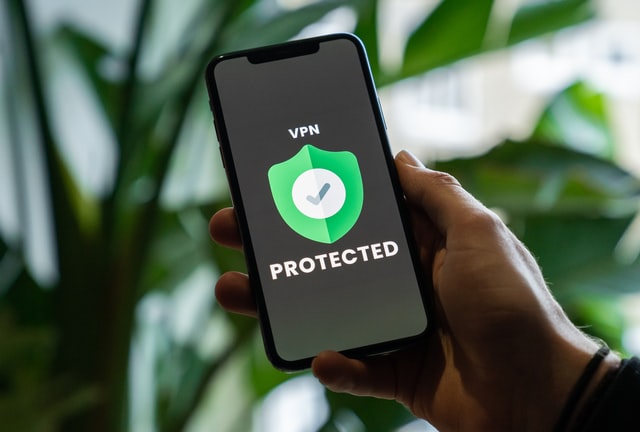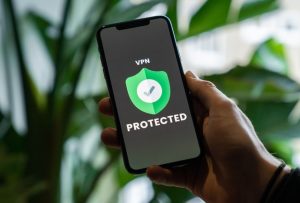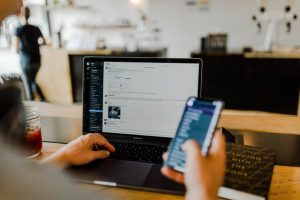Are you looking for a way to protect your online privacy, access blocked content, and have a secure and encrypted connection? If so, then using a virtual private network (VPN) may be the perfect solution for you. In this article, we will discuss the benefits of using a VPN and how it can help keep your data safe while allowing you to access content that may otherwise be blocked. We will cover topics such as secure and encrypted connections, accessing blocked content, and protecting your privacy. So let’s get started!
Secure and Encrypted Connection
One of the main benefits of using a VPN is that it provides you with a secure and encrypted connection to the internet. This means that your data is protected from being intercepted by third parties, such as hackers or government agencies. This is especially important if you’re using public Wi-Fi networks, as these are often unsecured and vulnerable to attack. VPN stands for “virtual private network.” VPNs encrypt your internet traffic and your identity online, making it harder for third-parties to break in and steal sensitive information.
Is a VPN Encrypted? The simple answer is yes, a VPN is encrypted. As we explain in our guide to VPNs, a VPN creates an encrypted tunnel between two points on the internet – usually between your device and the server of the service provider – which prevents anyone from intercepting or accessing your data while it’s in transit.
VPN connections use an encrypted tunnel to transmit your data. These secure tunnels are created through various protocols such as OpenVPN, IPSec/IKEv2, L2TP/IPSec etc., which ensure that all communication between two points on the internet remains safe and secure from any outside interference.
Using a VPN for access control is especially useful when people are working remotely. This way, you can ensure that company data remains encrypted even when accessed over public networks like Wi-Fi hotspots or cellular networks.
A further benefit of using a virtual private network (VPN) is that it carries all of your data through an encrypted tunnel so that all information sent over this connection becomes unreadable and inaccessible to anyone who might be trying to intercept it.
Access Blocked Content
Using a VPN is an excellent way to access content and services that may be blocked in your country. This is especially useful if you’re traveling abroad and want to access content that is only available in your home country. A VPN can help you bypass online censorship and use geo-blocked services from anywhere with a Virtual Private Network (VPN). It encrypts your web traffic when you travel abroad, allowing you to access websites, streaming services, and other online resources securely. However, it’s important to note that while using a VPN can provide many benefits, they can also be associated with illegal online activity and are not legal in every country. Therefore it’s important to check the laws of the countries where you plan on using a VPN before doing so.
Fortunately learning how to use a VPN doesn’t require extensive IT knowledge. In fact, it only takes a few simple steps from getting a VPN service provider of your choice to unblocking restricted content or accessing geo-blocked websites from anywhere around the world. First off, make sure that the provider offers servers located in countries where the content or website is available for viewing or streaming. Then sign up for their service by providing payment information such as credit card details or PayPal account credentials.
Once signed up for their service, download their software onto any device of your choice such as laptop computer or mobile phone then install it following instructions provided by them on their website. After installation open up the software application then log into it using username/password combination provided by them during signup process.
Now connect to one of their servers located in countries where desired content/website is available for viewing/streaming then start browsing normally as if connected directly without any restrictions imposed by local ISPs (Internet Service Providers) or government agencies.
Protect Your Privacy
When it comes to protecting your privacy online, using a Virtual Private Network (VPN) is one of the best ways to ensure that your data and activities remain secure. A VPN helps protect your personal data and online activities from being monitored or tracked, especially when you are using public Wi-Fi networks which are often unsecured and vulnerable to attack. With a VPN, all of your internet traffic is encrypted and routed through a private server, making it impossible for anyone else on the network to access or monitor what you do online. This means that even if you are using public or shared Wi-Fi, your identity will be kept private from any prying eyes.
A VPN also grants you access to a private anonymous network which can be very appealing if you handle sensitive information such as financial details or confidential documents. All of this is made possible by the encryption technology used by most VPNs which scrambles all of the data sent over the internet so that only those with permission can view it. This encryption also hides your browsing history from both your router and Internet Service Provider (ISP), as well as hiding both your IP address and location.
Conclusion
A Virtual Private Network (VPN) is a great way to keep your data safe and secure. It establishes a secure connection between you and the internet, routing all of your data traffic through an encrypted virtual tunnel. This ensures that no one can access or monitor your online activities, protecting you from government surveillance, ISPs, hackers, and other malicious actors. Additionally, VPNs allow users to access blocked content by masking their true IP address and location.
The advantages of using a VPN are numerous. Not only does it provide an extra layer of security for your online activities but it also allows you to browse the web without worrying about being tracked or monitored. Furthermore, VPNs enable users to bypass geo-restrictions so they can access content that would otherwise be unavailable in their region.
In conclusion, using a VPN offers many benefits such as enhanced security and privacy protection as well as unrestricted access to blocked content regardless of where you are located in the world. If you’re looking for a way to protect yourself while browsing the internet then investing in a reliable VPN is definitely worth considering.





Be First to Comment